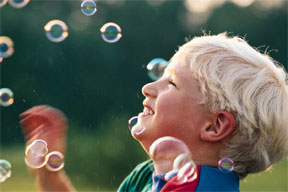Get Healthy by De-Stressing!
Hundreds of illnesses can be traced back to stress. Stress often creeps into almost unnoticed, and increases in small enough increments that it can become a lifestyle without our even recognizing it has happened. It can affect our home, our work, our relationships, our emotions, and ultimately, our physical wellbeing. Look at any list of illnesses, and you will see that a surprising majority can be traced back to stress. Yet, a few simple principles that involve reducing stress levels can make a world of difference in our health.
Do an inventory of what’s important in your life. How much of our lives involve time and energy output that do not bring us any benefit? It is easy to fall into patterns and habits that bring no return, either for ourselves or others. I recently worked with a client whose work was creating so much stress that he was at serious risk for a heart attack. As a member of middle management, he had to constantly face literally impossible demands. His doctor had warned him several times that he needed to cut back his stress. I asked him to think seriously about whether his job or his health was more important. He finally made a happy decision to take an early retirement—and save his life in exchange for less income. He realized he didn’t need the complicated lifestyle to which he had become accustomed, and decided that if he simplified things, the lower income would in no way be an adverse choice. Review your life day by day and critically ascertain what can be weeded out—then do it!
Put self-nurturing high on your list of what IS important. Self-nurturing means down-time, when the mind is still, body is resting, and we are taking in that which gives us a sense of relaxation. Self-nurturing means less “doing” and more receiving. For some this may mean a hot bath with baking soda and essential oils such as lavender, jasmine, or basil. For others it is a week overlooking the ocean. It might mean lying on the sofa with a good book, or sitting by the fire with a cup of hot tea. As the body goes into a genuine rest state, the relaxation allows mental stress to release and physical tension to dissipate. Self-nurturing is not the same as entertainment, food, or exercise; it is a lack of stimulation whereby we can become very quiet inside and allow ourselves to let in that which can soothe, calm, and heal.
Cut out excesses that are designed to de-stress, but actually add stress. Too much food, alcohol, and drugs actually add to stress rather than reduce it. Caffeine and sugar are also definitely in this category. Often when we are stressed, especially at the end of a long work week, we want the instant gratification that these excesses give us. We are usually just wanting nurturing, and to create the inner quiet that true nurturing brings. But our fast-paced culture, advertising, and habits can lead us to want to wind down quickly by taking in substances that feel good in the moment, but actually stress our bodies and leave us bloated, hung over, or exhausted. The “high” from these “feel good” substances leads to a “crash” fairly quickly. Notice, for example, that when you have a glass of wine, the actual time of feeling high is only about ten minutes. When you eat sugar, it is less time than that. Practice leaving a little on your plate. Save half for tomorrow. Enjoy your body’s feeling of not feeling stuffed and anesthetized. Enjoy enough. A client had recently gone through surgery. She was taking a long time to heal, was having a hard time sleeping, and felt depressed. She did not notice that her drinking had escalated with her inactivity, nor did she realize that all of these problems were basically being caused by excessive alcohol. She cut back drastically and saw her life get back on course.
Exercise. A simple walk every day provides all the de-stressing most people need, but of course more vigorous exercise will increase the benefits. Stress is the normal reaction to perceived threats. Our bodies were designed to eliminate the toxins that build up during stress by “fight or flight,”—physical movement. But in today’s world, we are much more sedentary than our ancestors, and we often have to make a conscious effort to move our bodies in such a way that they are cleansed. Moving the joints and muscles, deep breathing, and sweating all clean the body of unneeded residual chemicals—those created within the body’s own chemistry as well as those we ingest. So make a commitment to regular exercise. It is the best de-stressor there is, and its free!
Fill the mind with joy and laughter. So often we encourage our stress by feeding it thoughts—including music, movies and television—that mirror our worst feelings instead of our best. Put your mind on a diet of that which is delightful, humorous, and inspiring. It is a common therapy for people with cancer to spend hours a day watching funny movies. Do what makes you laugh. Create an environment that supports happiness. A friend of mine once said, “Be happy for no reason!” Your immune system will be healthy and your life a pleasure.
Our modern world does not encourage a life without stress, but we don’t have to buy into the idea that time is limited and that we have to keep pushing ourselves. Take charge of how you allow the world to affect you. It’s your life—make it a great one.











